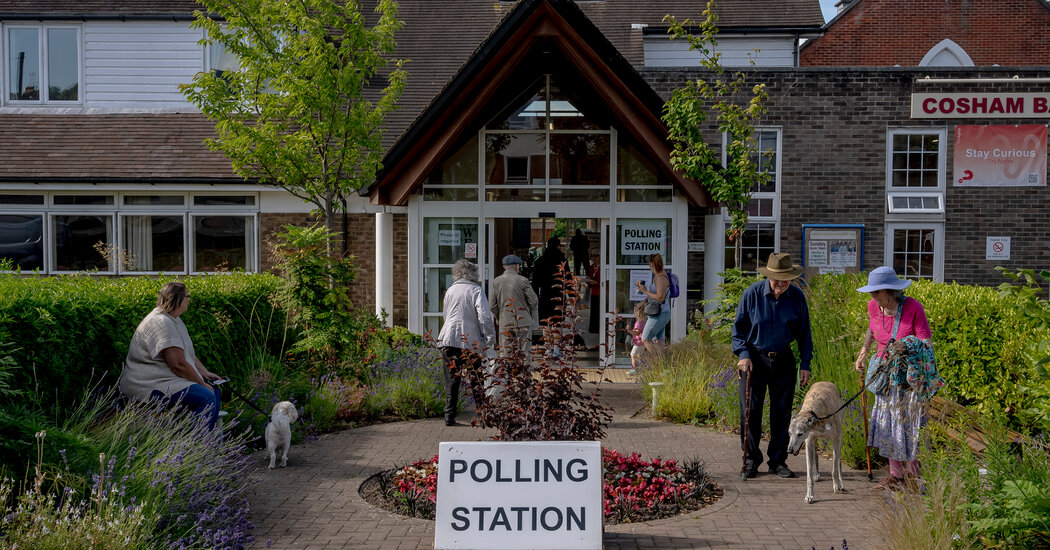Voters flocked to a polling station in Portsmouth, a city on England’s south coast known for its naval base and historic dockyard, on Thursday morning, to a warm welcome from poll workers.
Elderly couples walked hand in hand toward the local church, which had been temporarily set up with ballot boxes, along with parents with children in strollers and young adults rushing to work.
One by one, they cast their weight on the nation’s future in a vote that polls say could end 14 years of Conservative rule.
“I just want to see change,” said Sam Argha, 36, who was outside the polling station Thursday morning. “I just want to see us do something different.”
It also serves as a microcosm of the broader national challenge facing the ruling party: a long-standing Conservative electorate held by a popular candidate who now risks losing out, and a largely disillusioned electorate that has expressed frustrations with its quality of life and what many see as a lack of leadership.
The seat has long been held by Penny Mordaunt, a Conservative MP whose prominent role at the coronation of King Charles III last year, when she brandished a heavy, jewel-encrusted ceremonial sword, attracted international attention for her poise and poise.
She was first elected here in 2010, when the Conservatives entered a coalition government with the Liberal Democrats, and her political future now appears uncertain. Ms Mordaunt, who is seen as a possible contender for the leadership of her party, is highly regarded in Portsmouth, and many of her supporters have said they have no plans to move in a new direction.
But polls suggest Labour voters in the constituency could overtake the Conservatives in Thursday's vote.
The centrist Liberal Democrats, considered the third most popular party here, and the far-right Reform UK party could also take votes away from the Conservatives.
“I’m hoping for a much more compassionate government from Friday,” said Grahame Milner, 62, who was walking through the city centre on Wednesday afternoon with his husband of three decades.
Many of the shops around the couple were empty or boarded up. Graffiti marked the sides of the shuttered department stores. There is little to attract people to the area apart from bookmakers, charity shops and small shops selling e-cigarettes, Mr Milner said.
He first came here to serve in the Navy (the city is home to the country's largest naval base) and was deployed during the Falklands War in the 1980s as a cook aboard a naval vessel. He was kicked out of the military because of his sexual orientation, he said, and later became heavily involved in union work after returning to civilian life. He had already cast his vote by post last week.
“The austerity programme has been absolutely crippling for the working class,” Mr Milner said, pointing to the number of workers who rely on soup kitchens just to survive. “This is not the Britain I served in the army for.”
Her husband, Carl Milner, 64, acknowledged that it would be a tough task for whichever party comes to power. But he said of the Conservative government's plan to reduce inequality in communities across Britain: “We've talked about 'levelling up' for so long, but it's only gotten worse.”
Concerns about the depletion of the National Health Service, the cost of living crisis that has left many people struggling, debates over immigration and the consequences of Britain's withdrawal from Europe were at the forefront of many locals' minds.
They described a deepening decline in their fortunes and those of their hometown.
Others said they had no intention of voting at all, disillusioned with parties and politicians across the political spectrum who they considered out of touch.





